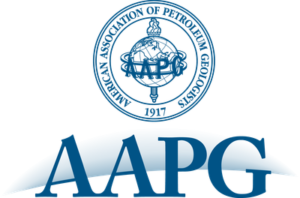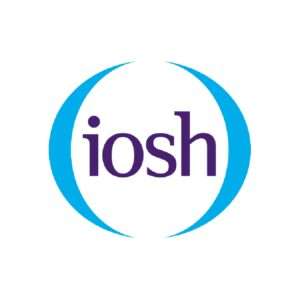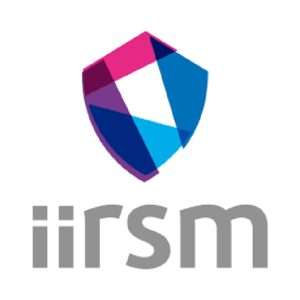Posted on September 3rd, 2024
Dr. Chizaram Nwankwo
Improvements in productivity and employee satisfaction are intertwined with the implementation of robust support systems, among which Employee Assistance Programs (EAPs) stand out.
As businesses strive for operational excellence, addressing the needs of their staff becomes increasingly important. Employees often grapple with personal and professional challenges that can impede their morale and efficiency.
Enabling access to EAPs introduces a structured approach to surmounting these issues, geared towards fostering a conducive work environment. It’s clear that a well-supported workforce contributes significantly to smoother, more productive operations—a truth that manifests through reduced absenteeism and enhanced job satisfaction.
When employees feel their well-being is prioritized, loyalty and engagement naturally follow suit.
The tangible benefits of EAPs extend beyond immediate morale improvements. Having resources available to address mental health issues, financial worries, and other personal challenges equips employees to maintain focus and productivity during working hours. Beyond merely addressing problems, this support mechanism cultivates a proactive stance towards overall well-being, fostering a healthier workplace culture.
Furthermore, companies that prioritize EAPs convey a strong message of commitment to their employees’ well-being. A workplace where EAPs are effectively integrated tends to attract top talent, enhancing the company’s reputation as an employer of choice. The assurance that confidential counselling and other support services are available encourages a positive and resilient work environment, fortifying the trust and mutual respect that’s important for long-term success.
The Importance of Employee Assistance Programs
The importance of employee assistance programs is underscored by their profound impact on employee morale and productivity.
Employees encountering personal or professional challenges often experience diminished productivity and increased absenteeism. Addressing these issues through EAPs can mitigate such detrimental effects, providing critical support to foster employee well-being and, in turn, benefitting the business.
For example, research from the UK’s Chartered Institute of Personnel and Development (CIPD) highlights that 84% of employers reported a noticeable improvement in workplace productivity and a reduction in absenteeism after implementing an EAP.
Additionally, a study by the Employee Assistance Professionals Association (EAPA) revealed that workplaces with EAPs saw up to a 45% reduction in work-related stress. These programs equip employees with resources to tackle issues related to mental health, financial pressures, legal concerns, and work-life balance, contributing to a more engaged and productive workforce.
Implementing EAPs also demonstrates a company’s commitment to employee well-being. This commitment can influence overall job satisfaction, as workers feel valued and supported in their personal and professional lives.
Such satisfaction often leads to higher retention rates and lower turnover, which are important in today’s competitive labour market. According to a recent survey conducted by Workplace Options, businesses that actively support their employees through EAPs experience a retention rate improvement of 27%.
Furthermore, when employees know they have access to confidential counselling services and other support mechanisms, they are more likely to engage positively with their workplace. This increased engagement not only boosts morale but also cultivates a workplace culture of trust, resilience, and mutual respect. Transitioning to an environment where employees feel cared for can drastically enhance your company’s reputation, making it an employer of choice and attracting top talent.
Moreover, the legal and compliance aspects cannot be overlooked. Ensuring that employees’ mental health and well-being are addressed aligns with the Health and Safety at Work Act 1974, which mandates employers to take reasonable measures to ensure health, safety, and welfare at work. Implementing EAPs can therefore help businesses stay compliant with these regulations while promoting a healthier work environment.
By proactively addressing these issues with an effective EAP, companies not only mitigate potential legal repercussions but also create a supportive atmosphere that can preemptively resolve many concerns before they escalate. Thus, EAPs serve as an indispensable tool for fostering a compliant, productive, and loyal workforce. This threefold advantage reinforces why integrating such programs into your business’s framework is a strategic initiative that pays dividends on multiple fronts.
Promoting Workplace Health and Safety
Additionally, employee assistance programs are instrumental in promoting workplace health and safety by proactively addressing potential hazards. Employees who are stressed or experiencing personal difficulties are more likely to be distracted and thus prone to accidents.
By providing access to counselling and support services, EAPs help employees manage these stressors, thereby reducing the likelihood of on-the-job injuries.
For instance, an employee who is dealing with financial stress might be less focused during a critical machinery operation, increasing the risk of accidents. An EAP can provide financial counselling, which helps employees develop better financial management strategies, easing their stress and promoting workplace safety.
Furthermore, workplace health can be enhanced through educational resources and preventive measures that are often part of EAP services.
Employees are educated on the importance of mental and physical health, including aspects like managing stress, maintaining a work-life balance, and the significance of regular health check-ups. These educational interventions can prevent issues such as burnout and chronic illnesses, which can have long-term consequences on employee productivity and workplace safety.
A good example is ergonomic training as part of an EAP. Employees learn how to set up their workstations correctly to avoid musculoskeletal issues, which are a common workplace hazard. This not only promotes health and safety but also significantly reduces sickness absence rates.
Effective support systems embedded within EAPs directly contribute to a safer work environment. For instance, confidential helplines and counselling services can help detect early signs of substance abuse among employees.
Substance abuse is a hidden hazard in many workplaces, leading to significant safety risks. Early detection and intervention can prevent accidents, reduce absenteeism, and promote a healthier workforce. Equally, the support systems can address workplace bullying and harassment, which are often underreported hazards that severely affect employee well-being.
By providing a safe space for employees to voice such concerns, EAPs play a critical role in mitigating these risks.
The integration of EAPs into safety training programs can also reinforce a culture of safety, where employees are encouraged to look out for each other’s well-being. Educating employees on the importance of mental health, managing stress, and other support mechanisms forms a comprehensive approach to promoting health and safety in the workplace.
Comprehensive Benefits of EAPs
Another significant aspect is the financial impact that EAPs can have on your business. Initially, investing in EAPs might seem like an additional cost, but it should be viewed as a strategic investment with substantial returns.
For instance, the reduction in absenteeism due to improved employee well-being can result in significant savings. Moreover, healthier employees typically require fewer medical interventions, thereby lowering overall healthcare costs.
The National Institute for Health and Care Excellence (NICE) states that for every £1 invested in an employee’s mental health, the return on investment can be as high as £5, primarily from reduced absenteeism, presenteeism, and staff turnover. These figures compellingly demonstrate that the costs of not addressing employee mental health far exceed the investment needed to put an EAP in place.
Furthermore, the potential for reduced insurance premiums should not be overlooked. Healthier, more engaged employees present fewer risks, which could lead to lower insurance claims and, consequently, reduced premiums. This results in more financial leeway that can be redirected into other critical business areas.
Beyond the quantifiable financial benefits, EAPs contribute significantly to fostering a community-oriented work environment.
As you have likely observed, businesses thrive when there is a cohesive atmosphere where employees feel they are part of a supportive network. EAPs can help cultivate this environment by addressing interpersonal dynamics and providing conflict resolution resources. This contributes not only to a harmonious workplace but also to more effective teamwork and collaboration.
Consider the benefits of an EAP that includes team-building workshops or training sessions on effective communication. These services can mitigate misunderstandings and conflict, enhancing overall workplace harmony and productivity.
Improved social dynamics within the workplace contribute to a more robust organisational culture, where employees support each other and feel more committed to their collective goals. Enhanced teamwork and collaboration not only improve job satisfaction but also drive innovation and efficiency, fostering a fertile ground for business growth.
Long-term retention of skilled employees is another important benefit provided by employee assistance programs.
Retention rates improve when staff feel that their employer is genuinely concerned about their well-being. High turnover can disrupt business operations and incur costs related to recruiting and training new employees.
An EAP offers consistent support that can address various stressors and challenges faced by employees, thereby reducing the temptation to seek employment elsewhere.
Workers are more likely to stay with a company that actively supports their mental health and professional development. This loyalty ensures that your company retains experienced staff, which is invaluable for maintaining consistent quality of service and institutional knowledge. Retaining skilled employees means your company can continue to leverage their expertise and avoid the disruption that high staff turnover causes.
Furthermore, as the workforce increasingly values mental health support, companies offering robust EAPs can stand out as employers of choice. Thus, integrating EAPs into your business strategy not only fortifies your commitment to employee well-being but also establishes your reputation as a progressive and caring employer.
To Conclude
Viewing EAPs as an integral component of your company’s health and safety strategy not only promotes a productive environment but also mitigates potential hazards.
Financial counselling, mental health support, and educational programs are all facets of EAPs that contribute to workplace safety. If you’re keen on implementing effective methods to mitigate workplace stress, Nancheez Ltd. offers specialized Rugby-based stress management workshops.
Should you require further assistance, our dedicated team is readily available at +44 1788 249662 for expert advice on establishing an EAP tailored to your specific needs.
Embedding EAPs into your overall HR strategy can significantly improve employee engagement and job satisfaction.
To learn more about how our health and safety services can improve your business, reach out to us via info@nancheez.co.uk.
Remember, fostering a supportive and healthy work environment is not only beneficial for employee well-being but is also a strategic investment in your company’s future success.















![Mastering Your Career [HARDCOVER]](https://drchizaramnwankwo.com/wp-content/uploads/2024/10/gj8yejj-front-shortedge-384-300x300.jpg)